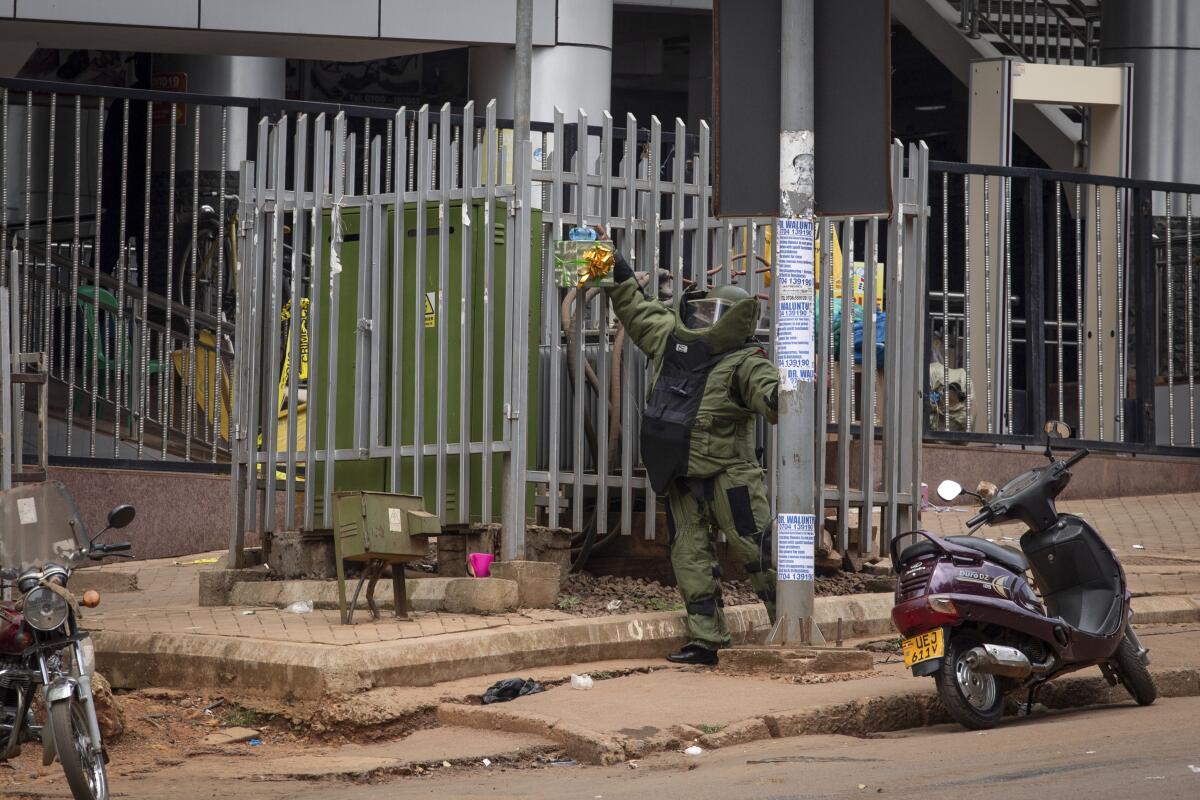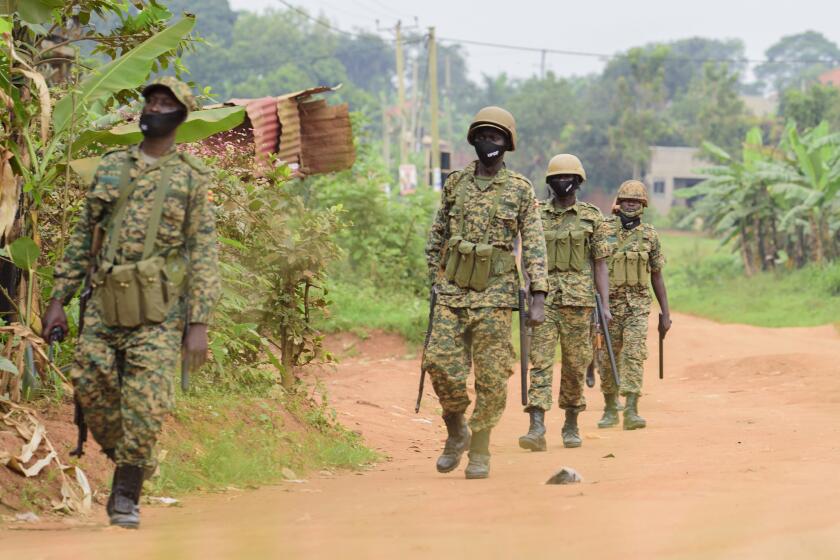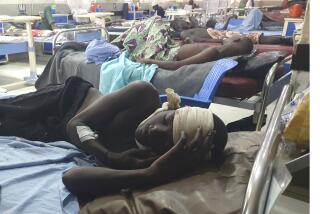Twin explosions rock Ugandan capital, killing at least 3 in extremist attack

- Share via
KAMPALA, Uganda — Two explosions rocked the Ugandan capital, Kampala, early Tuesday, killing at least three civilians in what police described as a coordinated attack by extremists.
Three suicide bombers also died in the blasts, police said. The explosions caused chaos as terrified residents fled the city center.
“The bomb threats are still active, especially from suicide attackers,” police spokesman Fred Enanga said, blaming the blasts on the Allied Democratic Forces, an Islamic extremist group.
The twin explosions occurred within three minutes of each other. Both were carried out by attackers carrying explosives. A possible attack on a third target was foiled by police who pursued and disarmed a suspected suicide bomber, Enanga said.
One blast was near a police station and the other on a street near the parliamentary building, according to police and witnesses. The explosion near parliament appeared to hit closer to a building housing an insurance company, and the subsequent fire engulfed cars parked outside. Body parts were seen scattered in the street, and later some lawmakers were seen being evacuated from the parliamentary building.
At least 33 people were being treated at the city’s main public referral hospital, Enanga told reporters. Five were critically injured, he said.
After Uganda’s leader was declared the presidential election winner, the opposition party called the results ‘fraud’ and called for its leader’s release.
People scrambled to leave the city in the aftermath of the attacks, many on passenger motorcycles, as police cordoned off wide areas near the blast scenes, footage posted on social media showed.
Ugandan officials have been urging vigilance after a string of bomb explosions in recent weeks.
One person was killed and at least seven others wounded in an explosion at a restaurant in a suburb of Kampala on Oct. 23.
Another explosion two days later on a passenger bus killed only the suicide bomber, according to police.
Even before those attacks, the British government had updated its Uganda travel advisory to say that extremists “are very likely to try to carry out attacks” in the East African country.
Breaking News
Get breaking news, investigations, analysis and more signature journalism from the Los Angeles Times in your inbox.
You may occasionally receive promotional content from the Los Angeles Times.
The Allied Democratic Forces, an affiliate of Islamic State in central Africa, claimed responsibility for the attack on the eatery. Enanga, the police spokesman, said Tuesday’s attacks bore “the hallmarks” of the group, although there was no immediate claim of responsibility.
At least 150 planned attacks have recently been thwarted, he said, describing the ADF as a “domestic terror group” eager to carry out more attacks.
The ADF has long opposed the rule of longtime President Yoweri Museveni, a U.S. security ally who was the first African leader to deploy peacekeepers in Somalia to protect the federal government from the extremist group the Shabab. In retaliation over Uganda’s deployment of troops to Somalia, the group carried out attacks in 2010 that killed at least 70 people who had assembled in public places in Kampala to watch a World Cup soccer game.
The ADF was established in the early 1990s by Ugandan Muslims who said they had been sidelined by Museveni’s policies. At the time, the rebel group staged deadly terrorist attacks in villages as well as in Kampala, including a 1998 attack in which 80 students were massacred in a frontier town near the Congo border.
A Ugandan military assault later forced the rebels into eastern Congo, where many rebel groups are able to roam free because the central government has limited control there.
Reports of an alliance between the ADF and Islamic State first emerged in 2019, according to the SITE Intelligence Group, which tracks the online activities of extremist organizations.
More to Read
Sign up for Essential California
The most important California stories and recommendations in your inbox every morning.
You may occasionally receive promotional content from the Los Angeles Times.














